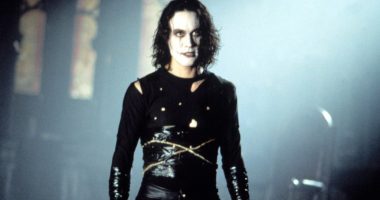
Joan Didion, the intensely personal journalist and author who teamed with her late husband John Gregory Dunne to write the screenplays for such films as The Panic in Needle Park and True Confessions, has died. She was 87.
Didion, whose best-selling masterpiece The Year of Magical Thinking documented her struggle to cope with the sudden 2003 death of Dunne and was adapted as a one-woman Broadway play, died Thursday at her home in New York due to complications from Parkinson’s, Didion’s publisher, Knopf, told The Hollywood Reporter.
The Year of Magical Thinking won the National Book Award and was a finalist for a Pulitzer Prize, sold in excess of a million copies and spent more than 24 weeks on The New York Times bestseller list.
“People would stop me in airports and tell me what it had done for them,” she said in a 2011 interview with New York magazine.
“Nothing I read about grief seemed to exactly express the craziness of it, which was the interesting aspect of it to me — how really tenuous our sanity is.”
Didion wrote The Year of Magical Thinking in 88 days, deciding to “write it fast so it would be raw, because I had the feeling that was the texture it ought to have.”
She added: “I found it amazingly easy to write. It was like sitting down and crying. I didn’t even have the sense that I was writing it. I’m usually very conscious of the rhythm of sentences and how that’s working. I didn’t even give that any thought.”
Didion then adapted her memoir for the Broadway play in 2007 that was directed by David Hare and starred Vanessa Redgrave as Didion; the actress received a best actress Tony nomination for her performance.
Didion said of the theatrical version: “[Producer] Scott Rudin came to me and said that he thought it would make a good one-woman play, and I resisted this idea. But he kept talking about it; and, after a while, I started thinking it would be an interesting thing to do, an interesting thing to try. I’ve never written a play or tried to write a play. I thought it would be an interesting exercise, and it has been.”
Didion met Dunne in New York when he was a staff writer at Time and she worked at Vogue. They married in 1964 and moved to Los Angeles that year to become screenwriters. (His brother, author and producer Dominick Dunne, was in Hollywood at the time.)
“The first script, we actually … we stole the script,” Didion told The New York Times in 1987. Added Dunne: “Some drunk actor was having a fight with his girlfriend, and he threw a script at her. And I picked up the script. It was the first script I’d ever read. And … so we learned.”
Didion wrote several screenplays with Dunne, including the Al Pacino starrer The Panic in Needle Park (1971), about a group of heroin addicts on the Upper West Side of Manhattan, which they adapted from a James Mills novel; Play It as It Lays (1972), based on her book of the same name (the harrowing film starred Tuesday Weld as a Hollywood actress becoming unglued); and True Confessions (1981), starring Robert De Niro and Robert Duvall as brothers (a priest and a detective, respectively). The latter was based on a Dunne novel.
The couple (and Frank Pierson) wrote a 1976 version of A Star Is Born, starring Barbra Streisand as an innocent singer and Kris Kristofferson as a has-been rock star.
Didion and Dunne also adapted Alanna Nash’s 1988 book Golden Girl: The Story of Jessica Savitch, but the movie, Up Close & Personal (1996), starring Robert Redford and Michelle Pfeiffer, bore little resemblance to the source material after the filmmakers changed the real-life story to make it more upbeat.
Regarding the book’s ending, in which Savitch drowned in a car accident (Golden Girl also said that the NBC News anchor had a cocaine problem), then-Disney executive Jeffrey Katzenberg asked, “What’s going to happen in this picture that will make the audience walk out feeling uplifted?”
Dunne, who had worked with Didion on the script for eight years, recounted the difficulty of the experience in his 1997 book, Monster: Living Off the Big Screen.
Wrote Roger Ebert of the film, “Up Close & Personal is so different from the facts of Savitch’s life that if Didion and Dunne still have their first draft, they probably could sell it as a completely different movie.”
Dunne died of a heart attack at age 71.
Didion was born Dec. 5, 1934, in Sacramento, California. She had an early love for reading and writing, describing herself as a shy, bookish child. “I wrote stories from the time I was a little girl, but I didn’t want to be a writer,” she told The Paris Review in 1978. “I wanted to be an actress. I didn’t realize then that it’s the same impulse. It’s make-believe. It’s performance, the only difference being that a writer can do it all alone.”
After graduating from the University of California, Berkeley, she won a Vogue essay contest, whose first prize was a job at the magazine’s New York office.
Her first novel, Run River, was published in 1963. The book focused on a married couple whose great-grandparents were pioneers. “I was working at Vogue during the day, and at night I would work on these scenes for [the] novel, in no particular sequence,” she said. “When I finished a scene, I would tape the pages together and pin the long strips of pages on the wall of my apartment. Maybe I wouldn’t touch it for a month or two, then I’d pick a scene off the wall and rewrite it.”
Didion wrote several other books of fiction, including A Book of Common Prayer (1977) and Democracy (1984), as well as nonfiction, including Slouching Towards Bethlehem (1968) and Blue Nights (2011).
Blue Nights focused on the death of her and Dunne’s adopted daughter, Quintana Roo, who died at age 39 after suffering from several illnesses.
“I found my mind turning increasingly to illness, to the end of promise, the dwindling of the days, the inevitability of the fading, the dying of the brightness,” Didion wrote. “Blue nights are the opposite of the dying of the brightness, but they are also its warning.”
She has said: “I was no longer, if I had ever been, afraid to die: I was now afraid not to die.”
Her best-known collections of nonfiction essays include Slouching Towards Bethlehem, described as “a rich display of some of the best prose written today in this country” by The New York Times, and The White Album (1979), which begins with the famous line, “We tell ourselves stories in order to live.” That became the title for a collection of her first seven works of nonfiction.
“I think of myself as Invisible Scarlet O’Neil,” she said of her journalism career. “There used to be a comic strip when I was little called Invisible Scarlet O’Neil, [who] was a reporter. She would press a band on her wrist, become invisible and cover the story invisibly. And everybody would be amazed that she had gotten the story. Well, that is how ideally I would like to be.”
In 2007, Didion was awarded the National Book Foundation’s Medal for Distinguished Contribution to American Letters and the WGA East’s Evelyn F. Burkey Award. She received the National Medal of Arts and Humanities, presented by President Obama, in 2012.
Didion described writing as a “hostile” act.
“It’s hostile in that you’re trying to make somebody see something the way you see it, trying to impose your idea, your picture,” she said. “Quite often you want to tell somebody your dream, your nightmare. Well, nobody wants to hear about someone else’s dream, good or bad; nobody wants to walk around with it. The writer is always tricking the reader into listening to the dream.”
Survivors include a nephew, actor Griffin Dunne, who directed Joan Didion: The Center Will Not Hold, a documentary that premiered at the 2017 New York Film Festival.
Source: HollyWood








